Business
No More N1450: Naira Wins As Dollar Crashes To Its Lowest Exchange Rate In 2025
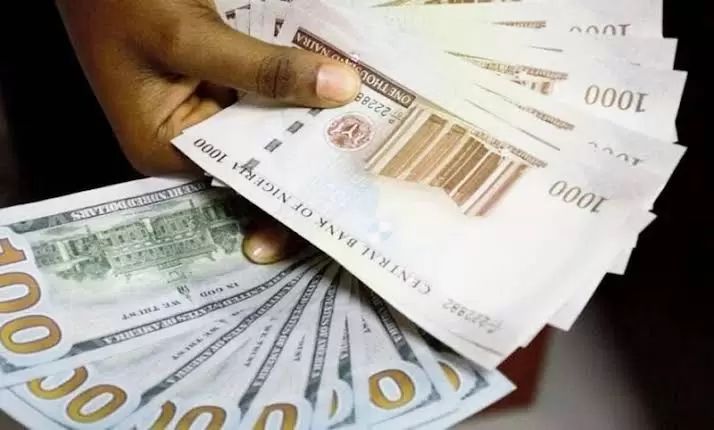
The United States dollar has crashed to its lowest in the official foreign exchange market against the naira
The British pound and the euro have also dropped in value as the naira continues its strong performance
The naira performance, according to Coronation Merchant Bank Limited, has attracted foreign exchange inflows
The Central Bank of Nigeria has revealed that the naira is now at its lowest level against the US dollar in 2025.
After trading activities at the Nigerian Foreign Exchange Market (NFEM) on Tuesday, October 26, the naira appreciated against the US dollar to close at N1,447/$.
The new exchange rate is a gain of N4.75 or 0.33% against the United States Dollar, in contrast to the preceding day’s N1,453.07/$1.
The last time the naira traded below N1,450 was in 2024 before the introduction of the NFEM.
It was the same performance for the naira against the British pound sterling and the euro on Tuesday in the official market.
The naira strengthened against the pound sterling in the official market, gaining N27.07 to close at N1,919.45 per £1, up from Monday’s N1,946.52 per £1.
The Nigerian currency also rose by N4.91 against the euro, ending the session at N1,690.33 per €1, compared with the prior session’s N1,695.24 per €1.
At GTBank, the naira gained N3 against the US dollar, exchanging at N1,462 per $1, up from N1,465 per $1 recorded the previous day.
In the black market, BDC traders confirmed to Legit.ng that the naira also appreciated:
One of the traders, Musa Bashir of said:
“My brother, the market has changed. We no longer get dollars from CBN and less patrinage because of banks having dollars now.
The dollar buying rate has dropped to 1,463 and selling rate now at N1,475. Previously buying rate was N1,476, while the selling rate is N1,486.
It is the same for the euro sells at N1,715, and we buy at N1,700. The British pound sterling is now trading below N2,000, selling at N1,995, with a buying rate of N1,970.”
Naira appreciation comes at the back of liquidity into the official market from foreign sources, the Central Bank of Nigeria (CBN), and other channels.
Its market update, Coronation Merchant Bank Limited revealed that the inflow to NFEM improved to $1.37 billion last week.
This suggests FX inflows in the official window increased by 25% week on week from $1.10 billion in the prior week.
Foreign portfolio investors (FPIs) remained the dominant source, according to Coronation Research, contributing 33.5 per cent ($460.01 million) of total inflows, followed by exporters (14.9 per cent), Non-Bank Corporates (10.8 per cent), CBN (6.6 per cent), and other sources (28.6 per cent).
In a related development reported that the Bank of Tanzania officially banned the use of foreign currencies, including the dollar, for local transactions and payments within the country.
With the ban, all goods and services in Tanzania must now be priced and paid for strictly in Tanzanian Shillings.
In a public notice, the central bank announced that all goods and services in Tanzania must now be priced and paid for strictly in Tanzanian Shillings.
Business
‘Cooking Gas, Petrol Prices Crash Nationwide’ [DETAILS]
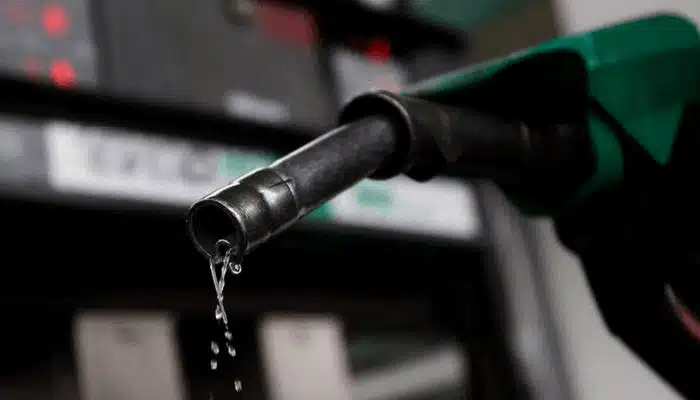
Petrol and cooking gas prices declined year-on-year in December 2025, signalling a gradual easing of household energy costs, according to separate reports released by the National Bureau of Statistics (NBS).
Naija News reports that data from the bureau showed that both Liquefied Petroleum Gas (LPG), commonly used for cooking, and Premium Motor Spirit (PMS), also known as petrol, recorded notable price reductions compared with December 2024, alongside modest month-on-month declines.
The NBS noted that while the downward trend was observed across most states and geopolitical zones, prices continued to vary widely depending on location.
5kg Of Cooking Gas Price Drops By 25%
According to the report, the average price for refilling a 5kg cylinder of LPG declined by 1.20 per cent month-on-month, falling from ₦5,425.78 in November 2025 to ₦5,360.43 in December 2025.
On a year-on-year basis, the price fell sharply by 25.31 per cent, down from ₦7,177.27 recorded in December 2024.
Confirming the trend, the NBS stated, “The average retail price for refilling a 5kg cylinder of Liquefied Petroleum Gas (Cooking Gas) decreased by 1.20 per cent on a month-on-month basis,” adding that the year-on-year decline stood at 25.31 per cent.”
A state-level analysis showed that Kaduna recorded the highest average price for refilling a 5kg cylinder at ₦5,838.66, followed by Jigawa at ₦5,825.09 and Osun at ₦5,777.80.
On the lower end, Katsina recorded the cheapest average price at ₦4,855.80.
Similarly, the average retail price for refilling a 12.5kg cylinder of LPG fell by 0.74 per cent month-on-month, declining from ₦13,538.79 in November 2025 to ₦13,438.90 in December 2025.
Year-on-year, the price dropped by 22.20 per cent from ₦17,274.16 recorded in December 2024.
On a state-by-state basis, Abia recorded the highest average price for refilling a 12.5kg cylinder at ₦14,489.96, followed by Osun at ₦14,444.50 and Delta at ₦14,393.17, the bureau said.
Petrol Price Dips To ₦1,048
The NBS also reported a decline in the average retail price of petrol.
According to the report, the average price of Premium Motor Spirit stood at ₦1,048.63 in December 2025, representing an 11.81 per cent decrease compared with ₦1,189.12 recorded in December 2024.
The bureau stated, “The average retail price paid by consumers for Premium Motor Spirit (Petrol) for December 2025 was ₦1,048.63.”
On a month-on-month basis, petrol prices declined by 1.20 per cent, down from ₦1,061.35 recorded in November 2025.
Further analysis showed that Kogi State recorded the highest average petrol price at ₦1,104.45, while Oyo State had the lowest at ₦996.55.
Regionally, the North East emerged as the most expensive zone for petrol, while the South West recorded the lowest average prices.
Business
BREAKING: Naira Hits Two-Year High In Official Window As External Reserves Rise

Nigeria’s naira recorded one of its strongest performances in months on Tuesday, January 27, 2026, appreciating sharply against the US dollar at the official foreign exchange window amid improving liquidity and rising confidence in the country’s FX reforms.
The local currency strengthened to around ₦1,400 per dollar at the official market, marking its firmest level since the Central Bank of Nigeria (CBN implemented sweeping FX reforms.
The move signals easing pressure on the naira and renewed optimism among investors and market participants.
According to the CBN’s daily foreign exchange report, the naira closed at ₦1,401.22 per dollar, representing a 1.27 percent appreciation on the day.
Market operators described the move as a reflection of improved dollar supply and stronger participation by banks and other authorised dealers.
Traders said the official window saw increased volumes, with the improved liquidity helping to narrow volatility and reduce speculative demand.
The latest performance reinforces the view that the reforms aimed at unifying exchange rates and improving price discovery are beginning to yield results.
The positive momentum extended to the parallel market, where the naira also posted modest gains.
Channel checks showed the local currency appreciating by about 0.33 per cent to trade around ₦1,476 per dollar. While the gap between the official and parallel rates remains, analysts say the narrowing spread reflects improving confidence across both the regulated and informal segments of the FX market.
According to a report by MarketForces Africa, reduced arbitrage opportunities and stronger supply conditions are helping to stabilise pricing.
The naira’s rally comes against the backdrop of rising external reserves, which have strengthened the CBN’s ability to intervene when necessary and support market liquidity.
Higher reserves are widely viewed as a key confidence signal for foreign investors, particularly portfolio investors who remain sensitive to currency risk.
Market watchers say consistent inflows from export earnings, improved remittance flows, and cautious monetary management have all contributed to the improved outlook for the naira in recent weeks.
Business
After Dangote, Another World Class Refinery to Be Built in Nigeria, CEO Confirms Location
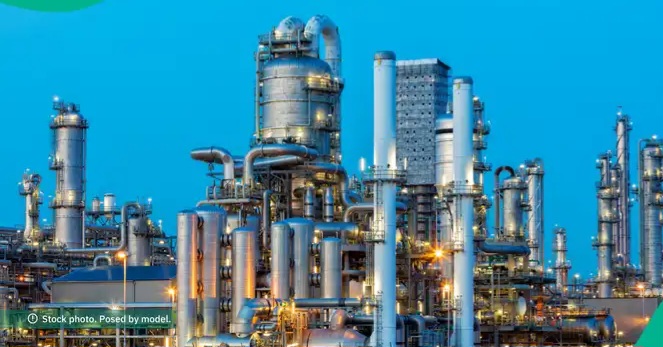
Clarivo Oil and Gas, led by Chief Obidike Chukwuebuka, has announced plans to build a world-class oil refinery in Calabar, Cross River State, aimed at boosting Nigeria’s downstream oil and gas sector.
Speaking to journalists, Chief Obidike said the project will be implemented in phases, in collaboration with foreign partners to bring advanced technical expertise and international industry standards.
The planned refinery will feature state-of-the-art technologies, including crude distillation, catalytic cracking, and hydrotreating units, enabling the production of high-quality petroleum products such as petrol, diesel, and aviation fuel.
The phased approach will begin with feasibility studies and front-end engineering design, followed by construction of core processing units, and conclude with installation of secondary units and commissioning.
Chief Obidike noted that the refinery aims to increase domestic refining capacity, reduce dependence on imported petroleum products, and enhance Nigeria’s energy security. He added that the project is expected to create significant employment across engineering, construction, operations, and logistics, while facilitating technology transfer through partnerships with international EPC contractors and investors.
On funding, he revealed that agreements with foreign stakeholders are being finalized to provide both technical and financial support. The refinery is projected to come online within five years, following the completion of all project phases and regulatory approvals.
-
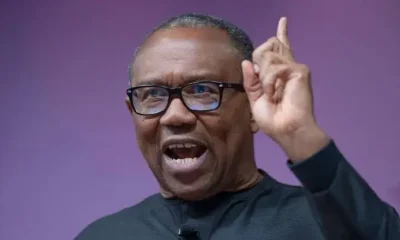
 Politics2 days ago
Politics2 days ago2027: Peter Obi Rejects Vice President Role, Declares Next Political Move
-
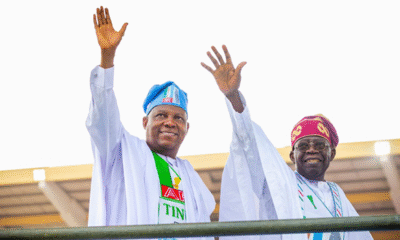
 Politics2 days ago
Politics2 days agoAPC Break Silence On Shettima’s Appointment As Vice President In 2027
-
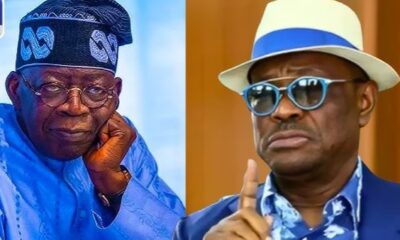
 Politics20 hours ago
Politics20 hours agoBREAKING: Tinubu Reportedly Issues Strong Orders To wike And Fubara
-

 Sports2 days ago
Sports2 days agoTransfer: Cristiano Ronaldo blocks moves for Benzema, Kante
-
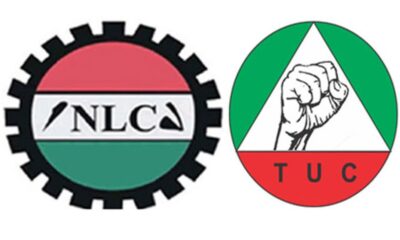
 News2 days ago
News2 days agoFCT: Court Bars NLC, TUC, Others From Embarking On Planned Protest
-

 Sports2 days ago
Sports2 days agoTransfer: Aribo seals loan move to Leicester City
-
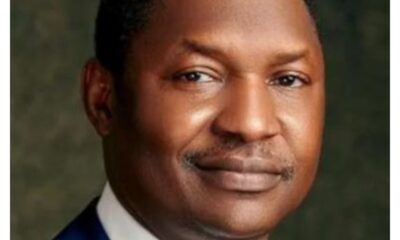
 News20 hours ago
News20 hours agoREVEALED: Details Of Alleged Terrorism Financing Charge Against Ex AGF Malami
-
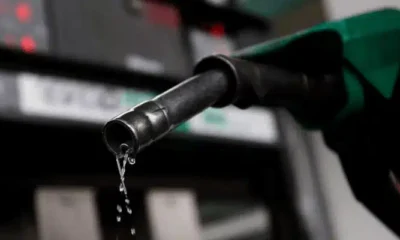
 Business20 hours ago
Business20 hours ago‘Cooking Gas, Petrol Prices Crash Nationwide’ [DETAILS]





